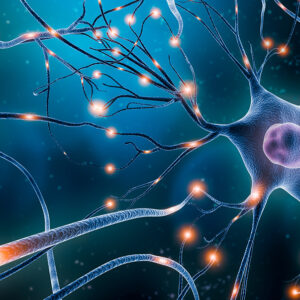Addiction may be about feeling oblivious for a few moments and escaping from your own mind. People may be afraid of death, other people’s judgement and even of their own thoughts. We don’t like living in our own minds, so we find the only pain killer, the addiction: be it work, food, consumerism, sex, internet, food, drugs, etc. to fill this emptiness from the outside.
What you eat will not change the sequence of your DNA, but your diet has a profound effect on how you “express” the possibilities encoded in your DNA. The foods you consume can turn on or off certain genetic markers which play a major role in your health outcomes.
We can now answer this question at a molecular level. Find out how your genes respond to the foods you eat, and what this does to the cellular processes that make us healthy or unhealthy.
Appetite regulatory hormones communicate with the neurotransmitters in the brain to switch on appetite, or tell the brain that you need to eat more or stop eating.
So why are people in pain, addicted, need that “sugar fix”? Perhaps, it’s the hurt of childhood, events, assault, or the environment which will shape the development of the brain and how we perceive life in our adulthood. the play between appetite hormones and neurotransmitters with glucose tolerance.
Addictions cause brain chemicals or neurotransmitters to become deficient. An abused drug or food addict increases the levels of dopamine a neurotransmitter that is responsible for the movement, cognition, feelings of pleasure etc. When the brain is over stimulated by the addiction, it secretes more dopamine. This makes the person feel euphoric effects which making them repeat the behaviour.
What should you eat?
We can now answer this question at a molecular level. Find out how your genes respond to the foods you eat, and what this does to the cellular processes that make us healthy or unhealthy.
Your DNA will assist you in understanding how your genes can influence:
- Your body size and weight
- Your ability to lose weight
- Your appetite and eating behaviours
- How your body stores and processes dietary fats
- Your risk of having an abnormal cholesterol profile
- Your vitamin, mineral, and other nutrient needs
- Your sensitivity to specific tastes, foods and drinks
- Your power, endurance, recovery and injury risk when you exercise
- recommendation to appropriate lifestyle changes
Learning Outcomes
In this course, you will learn
- what are appetite regulatory hormones
- how appetite hormones work in the brain
- how neurotransmiietrs influence appetite
- your DNA and appetite
- how to eat for your genes
Appetite Regulatory Hormones in Mental Health Part 1
In this lesson, you will learn:
-
- stages of dysglycemia
- appetite regulatory hormones
- insulin glucagon system
- interplay between Leptin, Adiponectin, CCK, Ghrelin, and ASP
- relationship between appetite hormones and neurotransmitters
Video
Video duration: 42:14 minutes
Appetite Regulatory Hormones in Mental Health Part 2
In this lesson, you will learn:
- testing for appetite regulatory homones
- management of obesity
Video
Video Duration: 17:36 minutes










